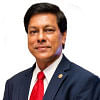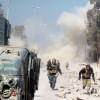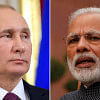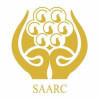The Politics of Terrorism

It's not the religion that creates terrorists, it's the politics. Terrorism is driven by politics even when the justifications given for the killing of innocents and the recruiting tools of terrorist groups are cast in religious, ethnic, linguistic or moral terms. Terrorism, for instance, is not fundamentally caused or driven by the theological differences between religions or by the differences in legal precepts between a religion and a state system. During an attack on Paris on Friday, November 13, 2015, gunmen and suicide bombers shouted "Allahu Akbar" as they detonated bombs in a concert at the Bataclan venue; the attacks have left at least 129 people dead and countless more injured. It would seem that their act has something to do with their religion. Taking advantage of the situation, many media platforms defamed Islam by portraying these bombers as 'Islamists' or 'Jihadists', as though they were sanctioned by Islam, or had any legitimate spokesmanship on behalf of the 1.6 billion Muslims around the world. Jihad is not a declaration of war against other religions; that is a misconception. The word "Jihad" means struggling or striving while a holy war in Arabic would be "al harb al muqaddasa".
Terrorists do not do Jihad, they do terrorism. Throughout history, people have perpetrated extreme terrorism in the name of religion, whether it be Christianity, Islam, Judaism, Hinduism or any other faith. There has been violence between Sinhalese and Tamils in Sri Lanka, Buddhists and Hindus in Bhutan, Hindus and Sikhs in Punjab, Eritreans and Ethiopians in the Horn of Africa, Hutu and Tutsi in Rwanda, ethnic Russians and Ukrainians in the former Soviet Union. But because of the mainstream media's narrow and often misplaced focus, most Westerners believe that religious extremism is primarily a problem of Islam. Today, Islam has been associated with terrorism and violence due to the actions of a few extreme individuals. Just as Christianity was not represented by the churchgoing militias of Radovan Karadzic in Bosnia some 20 years ago or Judaism is nor represented by West Bank settlers who burn mosques, Islam too is not represented by ISIS or its affiliated organisations.
Attacks on the West by IS or their affiliated groups were never over theological differences between Islam, Judaism and Christianity. The grievances expressed are broadly political in nature, and address, explicitly and implicitly, issues such as economic oppression, colonialism and political corruption. While public documents and communiqués put forth by these organisations or their followers normally start with statements invoking religious themes, the grievances expressed, real or imagined, and the objectives are always political in nature. However, if one were to question these attackers about why they do what they do, I am sure that they would present a religious justification. Indeed, religious slogans and quotes from the Qur'an are constantly on their lips. But the fact remains that these young males are often jobless, powerless, disaffected, and angry. They see Western powers as hegemonic and exploitative in their actions and intentions. They live in oppressive, autocratic, or dysfunctional societies that offer them few opportunities for economic advancement and none for political participation. As a consequence, they become radicalised. While their radicalism is superficially religious, and while religion may serve as a catalyst for their radicalisation, the true underlying motivation is a sense of outrage that is politically and economically induced.
Terrorism is rooted in concrete social and economic conditions - in deprivation, joblessness, discrimination, poverty and social marginality. Terrorism is the inevitable byproduct of inequality and injustice of the existing social and economic system. According to officials, at least three of the suicide bombers of the Paris attacks were French. France is home to an estimated 4.7 million Muslims who are highly segregated from the rest of the French society. In Paris, many Muslims live in the city's suburbs, known as banlieues. Tension between France and its Muslim population is strong and historic, rooted in the country's colonial activities and its treatment of French Algerians. Today, discrimination, poor employment opportunities, poverty, and isolation are all common in Paris' banlieues.
Now, the question is why do terrorists kill innocent people? When survival is at stake, it should not be surprising that such heinous activities come to be viewed by the offender as an opportunity rather than a cost. They think that force is the most direct way of achieving their goal or to take revenge upon an injustice against them. Such terrorists first practice by attacking soft targets until they are empowered to achieve their desired political influence. They then try to create panic with the hope that civilians, out of desperation, will demand that their state end the horror by any means, including giving in to the terrorists' demands. The primary weapon of terrorism is fear – not bombs or guns. Their attacks, in most cases, have a strategic objective to compel a regime to hear their voices or force 'aliens' to leave the territory that they view as their homeland. Here, to seek an explanation for terrorism is not to excuse the terrorists' monstrous attacks on innocent civilians but understanding what motivates them to kill could help find ways to reduce terrorism.
Terrorism needs to be confronted by a state's political will, not by its physical power. On September 26, 2001, fifteen days after 9/11, America invaded Afghanistan and they are at war even today. Similarly, just two days after bombing and gun attacks in Paris, twelve French warplanes bombarded Raqqa, the de facto 'capital' of IS in Syria. The thirst for revenge or declaring a 'war on terror' is not the solution. Terrorism cannot be eradicated as long as oppression or the perception of oppression remains. As long as there is non-parity in the strength of the parties on the various sides of the political argument, there will be those who choose violence as a means of advancing their goals.
Terrorists represent only a minuscule faction of any group. The so-called IS terrorists and their affiliated groups take satisfaction in sacrificing their own lives in their belief that they are doing a glorious job (as if the heaven has been kept reserved for killers). The fact of the matter is that the vast majority of these young fighters, who happen to have Muslim names or ascribe themselves to the Muslim faith, have never read the Qur'an in its proper context. When these texts are not read in their proper textual and historical contexts, they are manipulated and distorted. On the other hand, the US and their allies who possess the most advanced deadly war machines with which they can destroy countries twenty times over, take the satisfaction in taking away the life of others, in the name of killing their perceived enemies and even killing in the name of their so-called suspected enemies, and in their belief that they are also doing a glorious job (as if Jesus Christ is standing there to absolve all their crimes against humanity). It goes without saying, therefore, that both these parties apply the same technique for achieving their political goals, i.e. terrorism. One party terrorises by suicide- bombing, while the other party terrorises by 'shock-and-awe' military invasions and deadly air-raids. Therefore, they are nothing else but two sides of the same coin. Both are therefore evil. But for an answer to the question on who is the greater evil, ask your conscience.
The writer is a businessman. He can be contacted at [email protected].

 For all latest news, follow The Daily Star's Google News channel.
For all latest news, follow The Daily Star's Google News channel. 









Comments